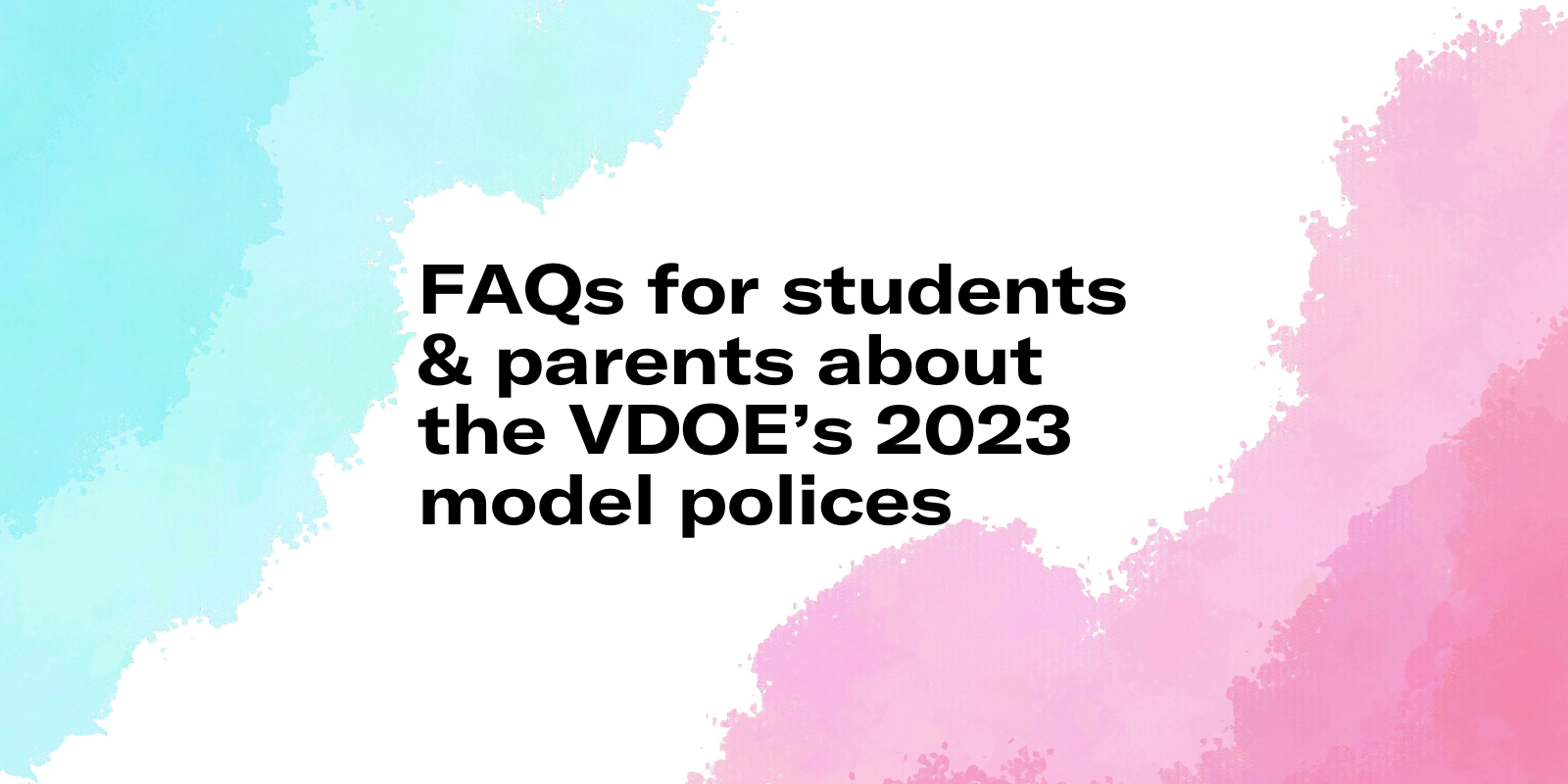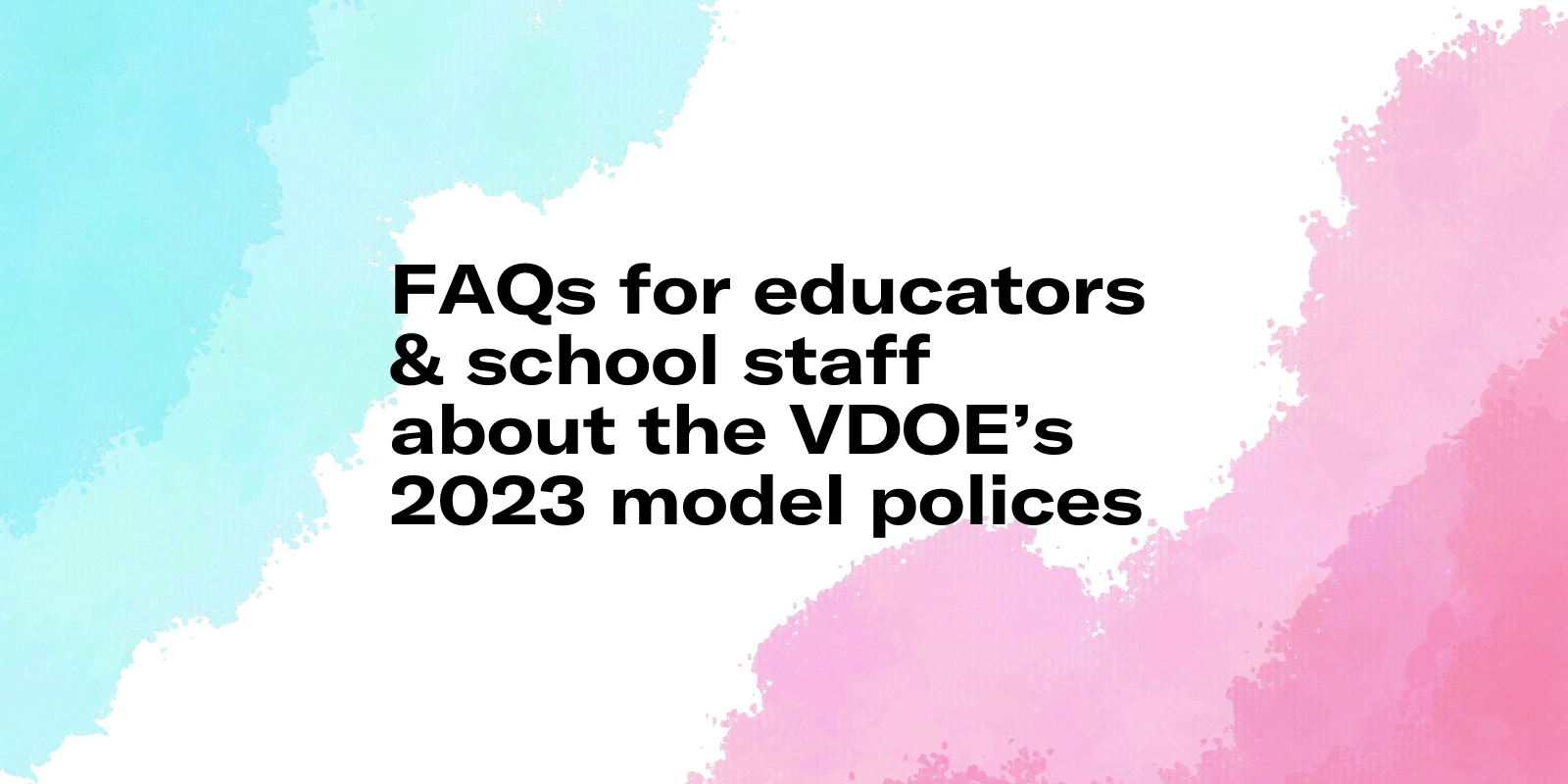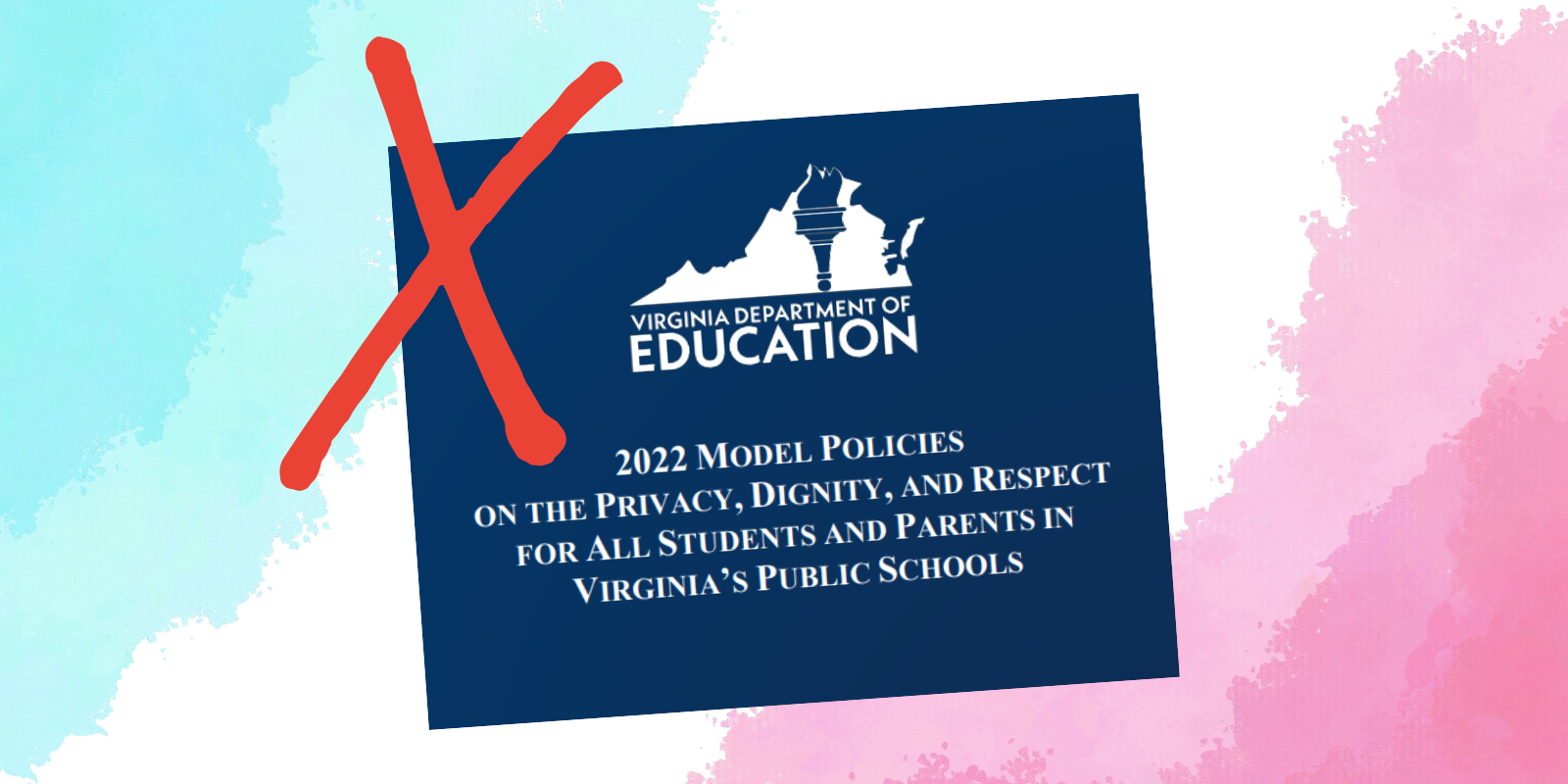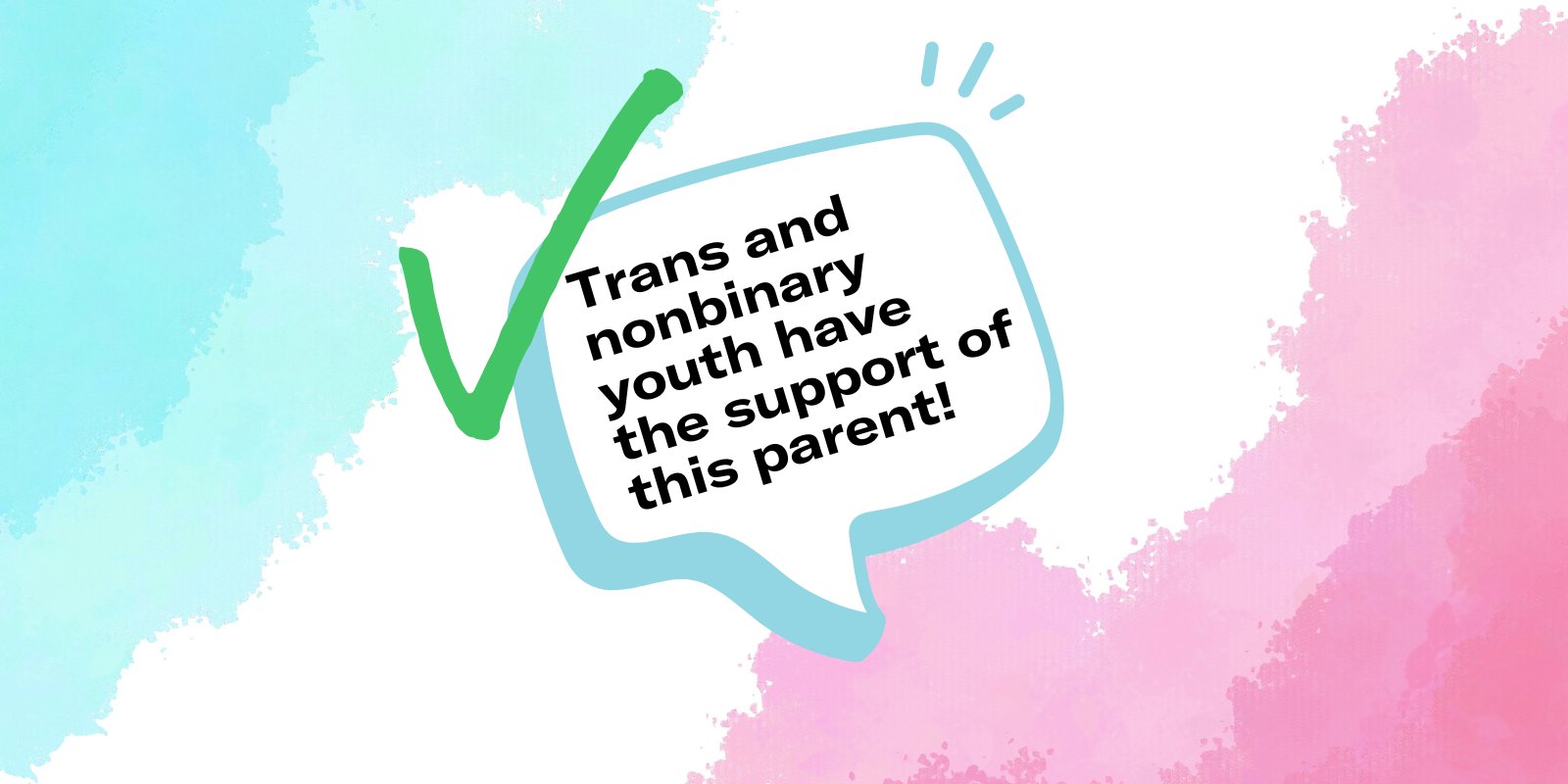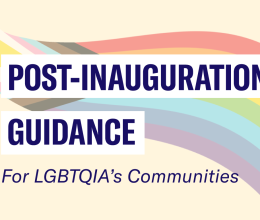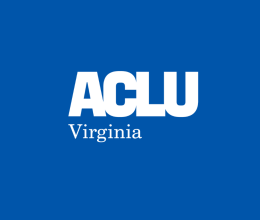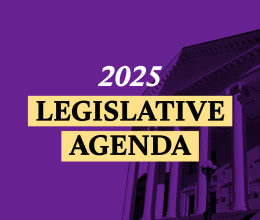- Updated on 06/18/2024: On 04/18/2024, the U.S. Department of Education issued a new final Title IX regulations that clarify school board's obligations to protect students from discrimination on the basis of gender identity. On 06/17, a Kentucky judge entered a preliminary injunction blocking the new Title IX regulations from taking effect in six states, including Virginia, BUT existing case law such as Grimm v. Gloucester County School Board still provide trans students protections under Title IX in Virginia. In addition, an appeals court that covers Virginia, West Virginia & 3 other states has ruled West Virginia's trans sports ban violates the federal rights of a 13-year-old trans girl. Under these new authorities, the VDOE’s 2023 Model Policies could expose districts to legal liability. You can attach our letter re: this ruling and new Title IX regulations to your local school board.
- NEW: We launched a Student Advocacy Toolkit, a resource for Virginia students, parents, educators, and allies, to advocate for inclusive schools for all, including LGBTQ+ students. Check it out!
- Updated on 3/7/2024: We created a guide for Virginians living in school districts that have adopted the VDOE's 2023 anti-trans model policies.
Check it out! - Updated on 11/1/2023: We published a position statement that provides insights into federal and state protections for transgender and nonbinary students. We encourage you to send it, along with a personal note from you sharing your concerns, to your school superintendent and school board.
More on the position statement here
In September 2022, Governor Youngkin’s Virginia Department of Education (VDOE) proposed withdrawing the 2021 model policies for the treatment of transgender students in Virginia's public schools and replacing them with new model policies. The proposed model policies sought to erase transgender and nonbinary youth from schools, creating a hostile and potentially dangerous environment. On July 18th, Youngkin’s VDOE finalized its 2023 model policies.
The 2023 model policies are a significant departure from the 2021 model policies. The 2021 model policies were created under the Governor Northam VDOE after the General Assembly passed a law in 2020 directing VDOE to develop evidence-based best practice model policies on the treatment of transgender and nonbinary students. The 2021 model policies are trans-affirming and were created in collaboration with various stakeholders, including parents, teachers and transgender students. All Virginia public schools were required to adopt policies consistent with or more comprehensive than the 2021 model policies by the 2021-2022 school year, but not all school districts did. And now, the current VDOE under Governor Youngkin has replaced the 2021 model policies with new policies that ignore both the law and evidence-based best practices. Instead, the 2023 model policies seek to impose harmful, anti-trans practices on Virginia’s young people.
On July 18, 2023, the Youngkin's VDOE released the final 2023 model policies, ignoring opposition from the majority of Virginians. However, these harmful policies will not be implemented by localities until school boards adopt them.
If you support transgender and nonbinary youth, one step you can take right now is to sign up for the ACLU-VA newsletter and take the Pride Pledge to receive updates on the model policies and action opportunities. We need your help to continue to make it clear that an overwhelming number of Virginians oppose these transphobic policies.
Schools Are Required to Not Discriminate Based on Gender
Is your school board considering adopting the 2023 VDOE Model Policies on Ensuring Privacy, Dignity, and Respect for All Students and Parents in Virginia’s Public Schools (“2023 Model Policies”)? If adopted, the 2023 Model Policies will result in transgender and nonbinary students facing increased bullying, harassment, and discrimination in the very place that should be a safe environment – their schools.
The 2023 Model Policies cannot & do not change the obligations of school boards under existing federal & state law. In Virginia, as well as under federal law, students are protected from discrimination on the basis of gender identity. If your school board is considering the 2023 Model Policies, you can provide your school board members with valuable information. The below ACLU position statement provides insights into federal and state protections for transgender and nonbinary students that should be considered before taking action. We encourage you to send it, along with a personal note from you sharing your concerns, to your school superintendent and school board.
This letter is not legal advice, nor does it create an attorney-client relationship with the ACLU of Virginia or any other attorney. Nor do we have the ability to answer any questions about specific school board actions. The letter is intended to outline our position of why we believe the 2023 Model Policies are contradictory with laws that expressly protect the rights of transgender and nonbinary people.
The ACLU of Virginia is keeping a close eye on the actions of school boards across the Commonwealth. If you send the letter to your school board, we’d appreciate you letting us know by sending a copy of the letter to protecttranskids@acluva.org. Again, this is a tool to help us track what is happening across Virginia and we are not able to respond to questions or requests for assistance sent to the email address.
Download the position statement here.
Transgender and nonbinary students have every right to be safe in school and we will continue to monitor and fight for the rights of these students against harmful policies like the 2023 Model Policies.
